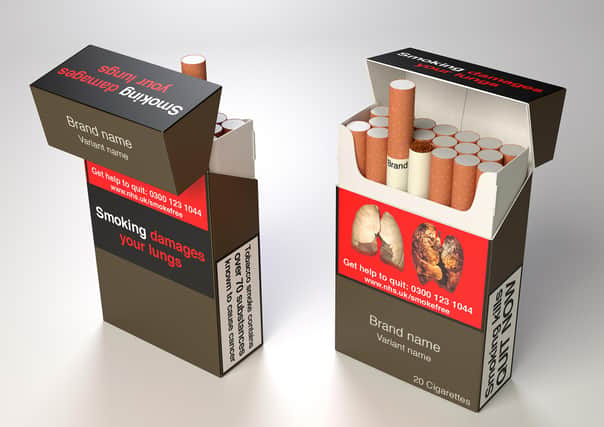Call for cigarette-style warnings on alcohol to highlight dangers


The paper, funded by Alcohol Focus Scotland and published in the journal Addiction Research and Theory, provides an insight into perceptions of warnings on packaging, particularly in Scotland, of those aged between 18 and 35.
Researchers at the University of Stirling found participants considered limited information currently provided by manufacturers on some products has little impact.
Advertisement
Hide AdAdvertisement
Hide AdDaniel Jones, lead author of the paper, said: “Alcohol consumption is associated with substantial health, economic and social burdens and is a major contributor to disease, injury and death in Scotland and across the UK, yet public awareness of the health risks is low.
“Participants did not feel that messaging currently provided voluntarily by manufacturers on alcohol products adequately informs consumers about the potential dangers associated with alcohol use.
“Most participants thought warnings on alcohol products were a novel concept, despite being accustomed to them on tobacco products.
“They felt that such warnings could increase consumers’ awareness of the health risks posed by alcohol consumption, particularly for younger or potential drinkers.”
Eight focus groups with 50 young adults, aged 18 to 35, from across Scotland, who had consumed alcohol in the previous month, were involved in the study.
Participants discussed knowledge of alcohol-related harms and sources of information, as well as views and use of information on current packaging.
Those who took part were sceptical of companies’ motivations with respect to messaging on products, believing that they sought to minimise potential damage.
It was found they generally believed the “Please drink responsibly” message was ambiguous and ineffective.